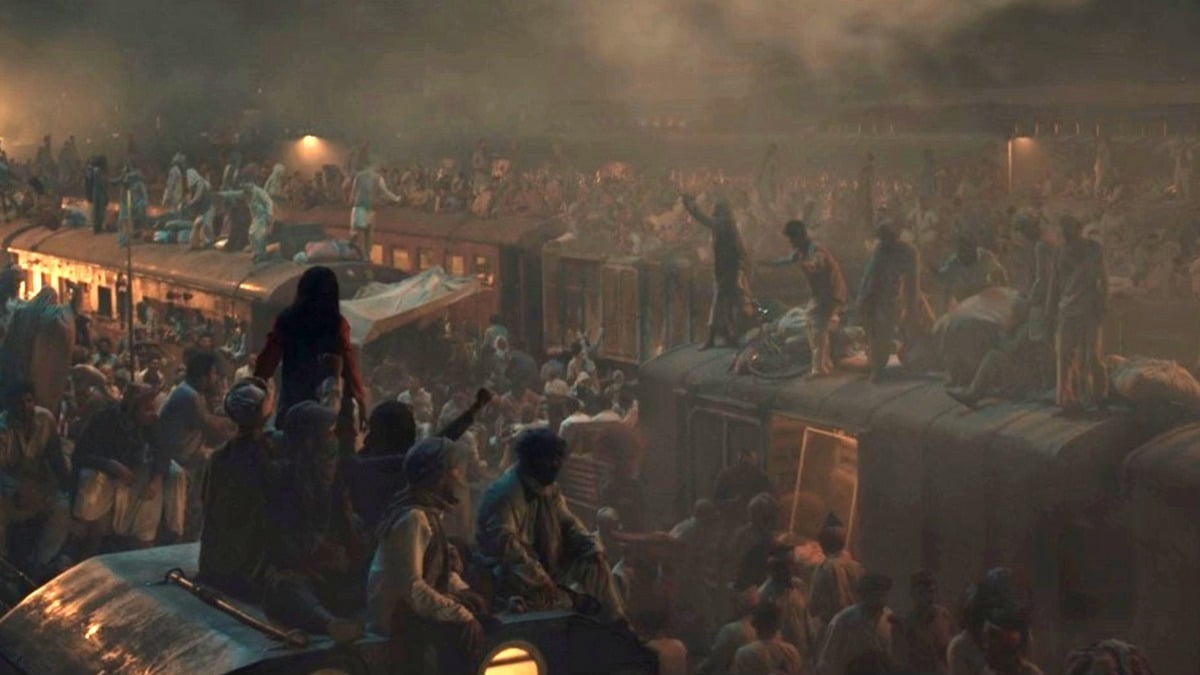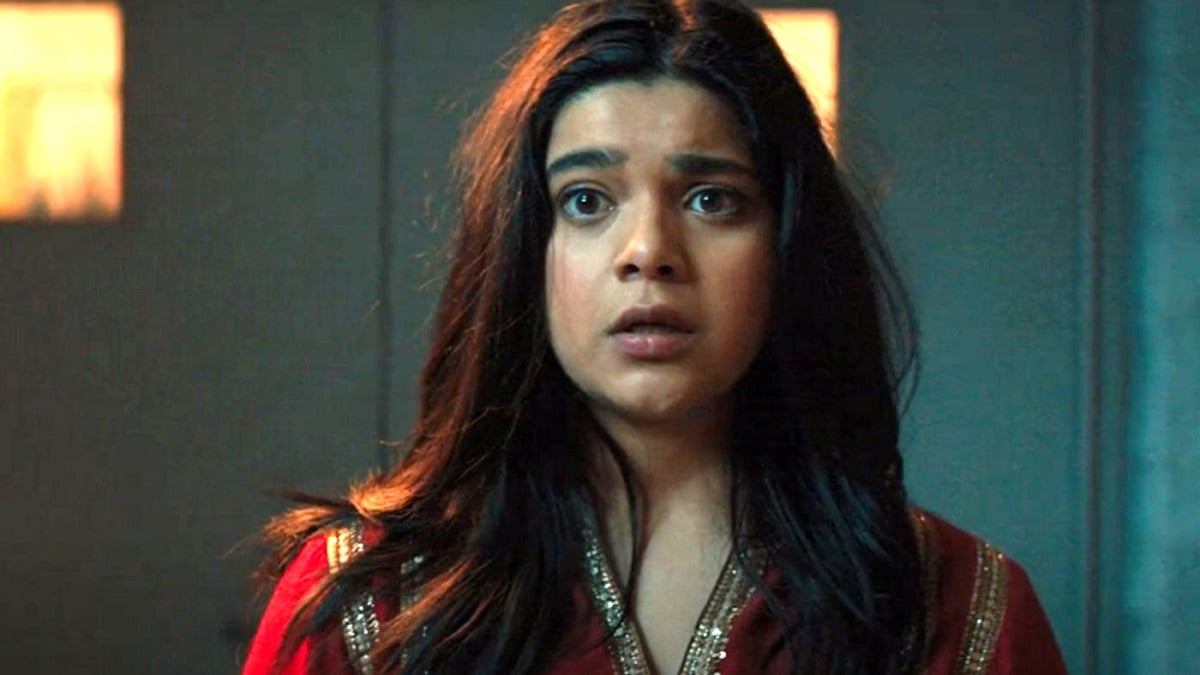This article contains spoilers for Ms. Marvel episode four
One of the most refreshing things about Ms. Marvel is its fearless approach to real-world issues. The show zeroes in on the immigrant experience in America, with Kamala Khan a second-generation Pakistani-American. Over the first four episodes, we’ve seen the Khan family traditions, their religious community, and how the lingering trauma of colonial history affects the family.
At the core of their story is the Partition. In 1947, the British departed India, bluntly attempting to solve any religious tensions by dividing the country. The side that’s now India was intended for Hindus and Sikhs, while Pakistan was for Muslims. This resulted in a chaotic exodus that saw families divided, lives ruined, and an estimated 1-2 million deaths. (Our writer Tristyn Akbas went into more detail on it here).
The event is still in living memory and, as Ms. Marvel says, “every Pakistani family has a partition story”.
But the episode four cliffhanger takes the show beyond merely referencing it to showing it, with Kamala Khan apparently thrown back in time to 1947. It’s a scary and crowded sequence of panicked people trying to board trains, and now director Sharmeen Obaid-Chinoy has explained what she wanted to achieve in an interview with Murphy’s Multiverse.
“I wanted Kamala to be listening to these frenetic conversations that were taking place as people were leaving their homes. So she’s almost listening to snippets of conversations and each conversation makes you realize what it meant for those people to leave their homes and leave relationships and to leave their family members.
In the case of the father and the son, he was too old to travel and he was sending his son. This little girl thinks that her mom and her will no longer have a place on the train because it’s so packed. These two friends who are hugging, who’ll never see each other again. And so as she was walking through and she was looking, the anguish of the families was reflecting on her face as she was listening.”

She went on to explain that her goal was to make this relevant to audiences who may not have even heard of the Partition.
“So I think that by making it deeply personal and making it about families and them leaving their homes, anybody…it was transcending cultures and boundaries. Anybody who’s had to leave home or who’s experienced refugees could…it touched them in some way.”
The fifth episode of Ms. Marvel looks set to explore 1947 a little more (it’s now a no-brainer where the trail of stars guiding her grandmother to her family came from), but we’re hoping that the entire installment isn’t set in the past. One of the best things about the show is its supporting cast, and the fourth chapter already deprived us of Mohan Kapur’s Mr. Khan, Matt Lintz’s Bruno, and Yasmeen Fletcher’s Nakia.
We want more of them – and at this point, we’re wishing Ms. Marvel was 12 episodes long rather than six!
Ms. Marvel airs Wednesdays on Disney Plus.

